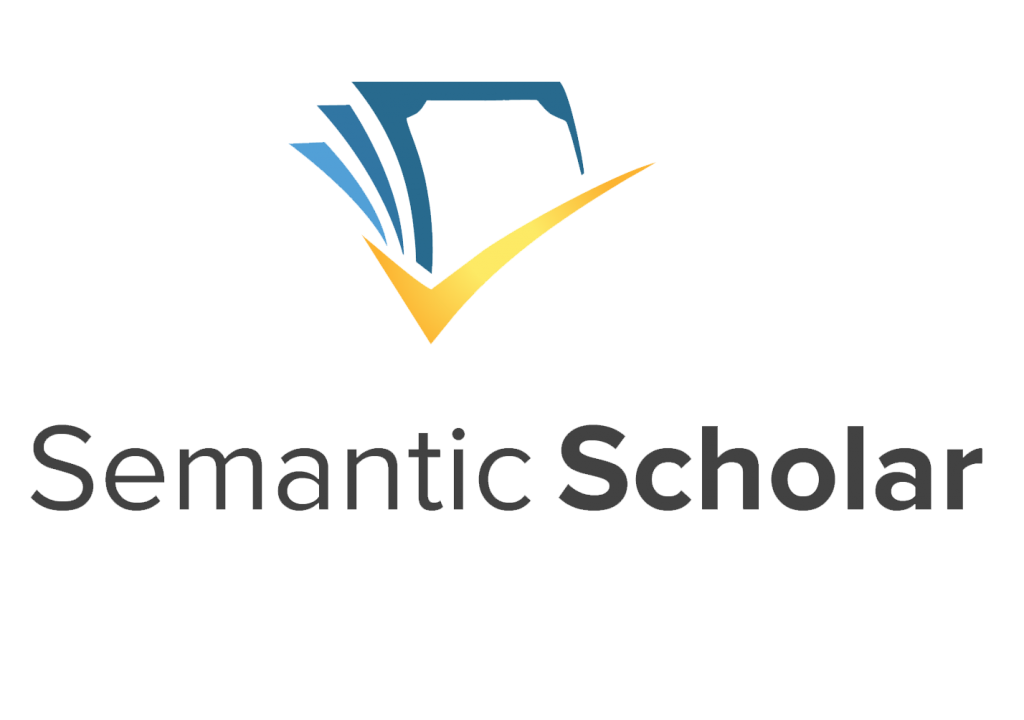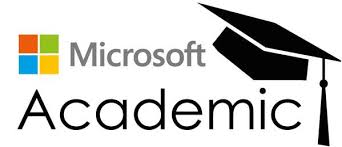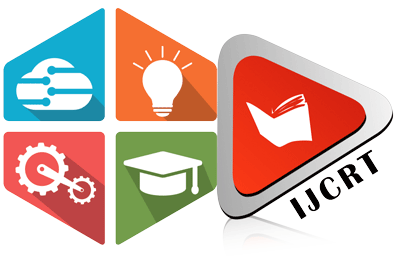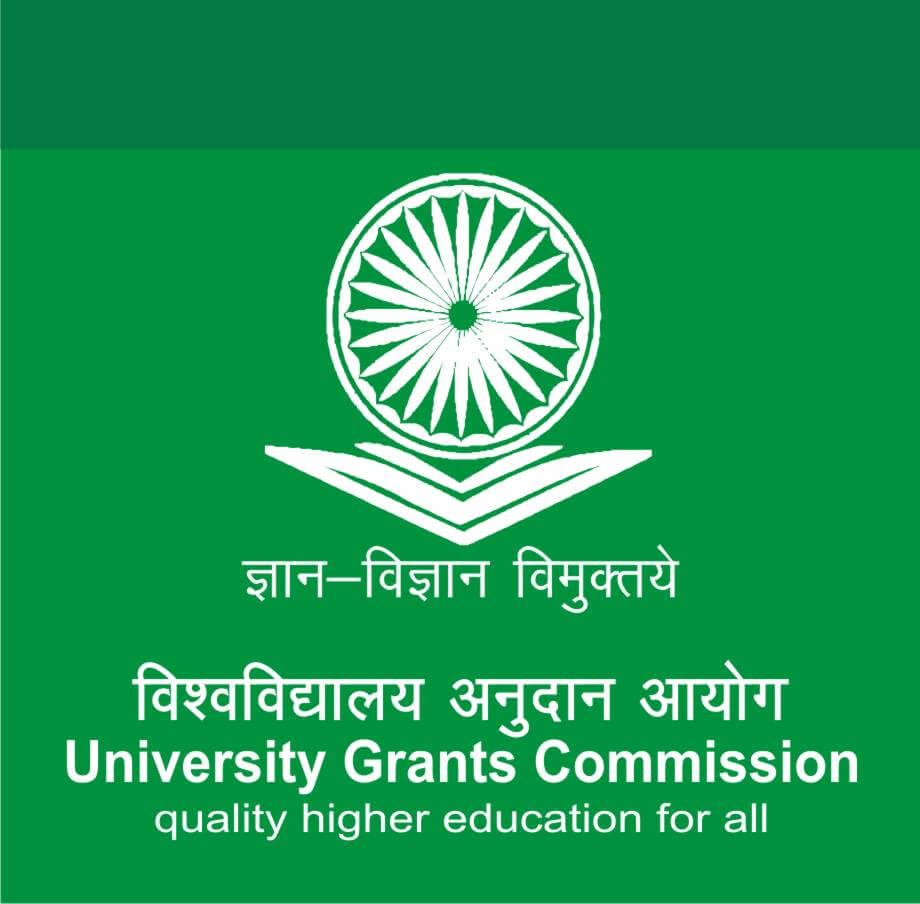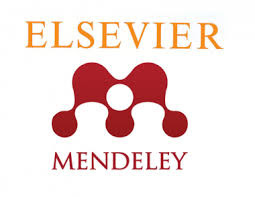INTERNATIONAL JOURNAL OF CREATIVE RESEARCH THOUGHTS - IJCRT (IJCRT.ORG)
International Peer Reviewed & Refereed Journals, Open Access Journal
IJCRT Peer-Reviewed (Refereed) Journal as Per New UGC Rules.
ISSN Approved Journal No: 2320-2882 | Impact factor: 7.97 | ESTD Year: 2013
Call For Paper - Volume 13 | Issue 11 | Month- November 2025
Scholarly open access journals, Peer-reviewed, and Refereed Journals, Impact factor 7.97 (Calculate by google scholar and Semantic Scholar | AI-Powered Research Tool) , Multidisciplinary, Monthly, Indexing in all major database & Metadata, Citation Generator, Digital Object Identifier(CrossRef DOI)
Contact Us Click Here
WhatsApp Contact Click Here
Volume 12 | Issue 5
| IJCRT Journal front page | IJCRT Journal Back Page |
Paper Title: CRYPTOCURRENCIES: TREND, SIZE & GROWTH IN INDIA
Publisher Journal Name: IJCRT
Your Paper Publication Details:
Published Paper ID: - IJCRT24A5649
Register Paper ID - 262602
Title: CRYPTOCURRENCIES: TREND, SIZE & GROWTH IN INDIA
Author Name(s): MADHU BALA SHARMA, POOJA YADAV
Publisher Journal name: IJCRT
Volume: 12
Issue: 5
Pages: o490-o503
Year: May 2024
Downloads: 184
Abstract
As time passes, necessity and innovations both go to an advanced level. And these two are the basic key to the betterment and advancement of an economy. Over the years, global payment practices have undergone significant transformations, transitioning from traditional bartering methods to more sophisticated systems such as bank transfers, NEFTs, RTGS systems, and e-payments. With the evolution of these payment practices worldwide, cryptocurrencies have also emerged as a novel form of transactional currency, presenting both opportunities and challenges. Many countries have accepted it but some are still struggling with how malpractices frauds and scams could be prevented while using cryptocurrencies. In India, where regulatory frameworks are still evolving, the landscape for cryptocurrency adoption remains dynamic and complex. The lifting of the ban on cryptocurrencies by the Supreme Court of India in 2020 marked a significant milestone in the country's approach to digital assets. However, the absence of a structured legal framework leaves room for ambiguity and potential risks. Against this backdrop, this study conducts an empirical analysis to shed light on the expansion of cryptocurrencies within India. Around 21,555 cryptocurrencies had been discovered till July 2022 and it has reached to 2.5 million cryptocurrencies as of April 2024, indicating a substantial presence and growing interest in these digital assets. By examining market trends, patterns, and growth trajectories, the research aims to provide comprehensive insights into the size and dynamics of the Indian cryptocurrency market, offering valuable insights for stakeholders and policymakers alike.
Licence: creative commons attribution 4.0
License
Keywords
Cryptocurrencies, Trend, Growth, Size, Bitcoin, India.
License
Paper Title: Challenges And Barriers In E-Commerce For Rural Smes Of Al Dakhiliyah Governorate, Sultanate Of Oman
Publisher Journal Name: IJCRT
Your Paper Publication Details:
Published Paper ID: - IJCRT24A5648
Register Paper ID - 262521
Title: CHALLENGES AND BARRIERS IN E-COMMERCE FOR RURAL SMES OF AL DAKHILIYAH GOVERNORATE, SULTANATE OF OMAN
Author Name(s): Dr. Venkata Naga Sundar Rao Abbaraju, Dr. Lenin Kumar Nooney
Publisher Journal name: IJCRT
Volume: 12
Issue: 5
Pages: o478-o489
Year: May 2024
Downloads: 163
Abstract
This study examined the challenges and barriers that rural Small and Medium Enterprises (SMEs) in Al Dakhiliyah Governorate, Sultanate of Oman, encountered in using e-commerce platform. A structured questionnaire was used to collect data from 133 owners or managers of rural SMEs as part of a survey-based study strategy. The study used quantitative research methodologies, which included statistical analysis techniques like descriptive statistics, correlation analysis, and regression analysis using SPSS. Purposive sampling was used to identify participants. The main findings show significant positive associations between barriers and performance expectancy, effort expectancy, and observational learning, as well as between challenges and these same variables. Regression models show that barriers and challenges account for a portion of the variation in performance expectancy, effort expectancy, and observational learning. The study emphasizes the need of overcoming challenges and barriers for rural SMEs to effectively use e-commerce, as well as the implications for policy and practice in promoting digital adoption among rural enterprises.
Licence: creative commons attribution 4.0
License
Keywords
Barriers, Challenges, E-commerce, SMEs, Observational Learning, Performance and Effort expectancy.
License
Paper Title: ESTIMATION FOR QUANTITY OF EARTHWORK IN CONSTRUCTION OF GRADED BUND
Publisher Journal Name: IJCRT
Your Paper Publication Details:
Published Paper ID: - IJCRT24A5647
Register Paper ID - 262435
Title: ESTIMATION FOR QUANTITY OF EARTHWORK IN CONSTRUCTION OF GRADED BUND
Author Name(s): Mohd Vasique Hussain, Ashish Parmar, Mansvi Gour
Publisher Journal name: IJCRT
Volume: 12
Issue: 5
Pages: o474-o477
Year: May 2024
Downloads: 168
Abstract
Soil erosion mainly occurs on sloping ground and are difficult to manage resulting in soil loss. Due to slope most of the area remains uncultivated. Storage of water is also a major issue in sloping land. The Imaliya farm site located in jabalpur has also such conditions due to which major portion of the land remains unused. The research aims to provide suitable design of graded bund and the quantity of earthwork required to construct the bund at Imaliya farm site for better utilization of rainfall and crop production.
Licence: creative commons attribution 4.0
License
Keywords
Soil erosion, runoff, bund, earthwork
License
Paper Title: IDENTIFICATION AND PREDICTION OF RECIPE USING INGREDIENTS' SNAPSHOT
Publisher Journal Name: IJCRT
Your Paper Publication Details:
Published Paper ID: - IJCRT24A5646
Register Paper ID - 262573
Title: IDENTIFICATION AND PREDICTION OF RECIPE USING INGREDIENTS' SNAPSHOT
Author Name(s): Ananya B, B Skanda Ravi Rao, Meghana H S, Vaishnavi M S, Malathi.P
Publisher Journal name: IJCRT
Volume: 12
Issue: 5
Pages: o465-o473
Year: May 2024
Downloads: 124
Abstract
This paper proposes a deep learning-based system for automatic recipe recommendation using a single image of the available ingredients. The system leverages the strengths of two powerful convolutional neural networks (CNNs): YOLOv5 and Inceptionv5.YOLOv5, a state-of-the-art object detection model, efficiently identifies and localizes individual ingredients within the image. This provides a crucial foundation for understanding the available ingredients.Following object detection, Inceptionv5, a robust image classification model, classifies the identified ingredients into predefined categories. This allows the system to categorize the ingredients (e.g., vegetables, fruits, spices) for further processing. With the knowledge of the identified and classified ingredients, the system predicts potential recipes. This can be achieved through techniques like nearest neighbor search in a recipe database indexed based on ingredients. This approach offers several advantages: convenience by suggesting recipes based on existing ingredients, dietary management by recommending recipes that adhere to specific needs, and reduced food waste by suggesting recipes that utilize available ingredients.
Licence: creative commons attribution 4.0
License
Keywords
culinary research, deep learning, feature extraction, inception v5 architecture, yolov5
License
Paper Title: Cultivating Musical Talent: The Impact Of Information And Communication Technology On Music Education Students' Learning And Performance
Publisher Journal Name: IJCRT
Your Paper Publication Details:
Published Paper ID: - IJCRT24A5645
Register Paper ID - 262600
Title: CULTIVATING MUSICAL TALENT: THE IMPACT OF INFORMATION AND COMMUNICATION TECHNOLOGY ON MUSIC EDUCATION STUDENTS' LEARNING AND PERFORMANCE
Author Name(s): Dr.Siddhartha Choudhury
Publisher Journal name: IJCRT
Volume: 12
Issue: 5
Pages: o461-o464
Year: May 2024
Downloads: 138
Abstract
Education in many areas, including music, has been transformed by the integration of information and communication technology (ICT). The current research analyzes the effects of ICT on students' performance and learning in music instruction. The study looks at how digital tools and platforms improve access to a variety of musical resources, foster collaborative learning, and improve musical talents through a thorough investigation. It also addresses the difficulties and constraints associated with integrating ICT into music education, offering insightful advice to researchers, educators, and legislators on how to optimize ICT's potential for developing musical ability.
Licence: creative commons attribution 4.0
License
Keywords
Information and Communication Technology (ICT), Music education, Learning outcomes, Digital tools, Collaborative learning, Access to resources, Academic performance.
License
Paper Title: OPTIMIZATION OF WIRE EDM PROCESS USING TAGUCHI METHODOLOGY
Publisher Journal Name: IJCRT
Your Paper Publication Details:
Published Paper ID: - IJCRT24A5644
Register Paper ID - 262631
Title: OPTIMIZATION OF WIRE EDM PROCESS USING TAGUCHI METHODOLOGY
Author Name(s): S Pawan Kalyan, Nagesh N, K Ganesh
Publisher Journal name: IJCRT
Volume: 12
Issue: 5
Pages: o451-o460
Year: May 2024
Downloads: 158
Abstract
This paper presents the CNC Wire Cut Electrical Discharge Machining (WEDM) is a highly regarded material removal process utilized for creating components with complex shapes and profiles. An advanced form of traditional EDM, WEDM employs a continuously moving wire electrode--typically made of thin copper, brass, or tungsten with a diameter ranging from 0.05 to 0.3 mm--to initiate the sparking process, enabling the achievement of very small corner radii. This process erodes material ahead of the wire, thereby avoiding mechanical stresses during machining. The impact of various WEDM process parameters, such as discharge current, wire speed, wire tension, dielectric flow rate, pulse on time (TON), and pulse off time (TOFF), on the Material Removal Rate (MRR) of D2 (Cold Working Die Tool Steel) has been studied using the Taguchi Methodology. Experiments were designed using a standard Orthogonal Array known as the Taguchi method or OA design. The analysis of variance (ANOVA) results indicate that the proposed mathematical model reliably describes performance within the studied parameter limits. Additionally, the optimal set of process parameters for maximizing MRR has been identified.
Licence: creative commons attribution 4.0
License
Keywords
Index Terms - CNC Wire Cut Electrical Discharge Machining (WEDM), Material removal process, Tungsten, Mechanical stresses, Analysis of Variance (ANOVA), Optimal process parameters, Material Removal Rate (MRR), Dielectric flow rate.
License
Paper Title: Buzz Chatbot: A Scalable and Reliable Chatbot by using MLOPS and Leveraging Google Cloud Technologies for Conversational AI Chatbots Built on GCP
Publisher Journal Name: IJCRT
Your Paper Publication Details:
Published Paper ID: - IJCRT24A5643
Register Paper ID - 262680
Title: BUZZ CHATBOT: A SCALABLE AND RELIABLE CHATBOT BY USING MLOPS AND LEVERAGING GOOGLE CLOUD TECHNOLOGIES FOR CONVERSATIONAL AI CHATBOTS BUILT ON GCP
Author Name(s): Pratik Raghunath Sontakke, Prathmesh Wadje, Abhijit Sonwane, Ranjana Singh
Publisher Journal name: IJCRT
Volume: 12
Issue: 5
Pages: o446-o450
Year: May 2024
Downloads: 144
Abstract
Buzz Chatbot, a unique conversational agent meant to work flawlessly with the integration of image prompting to enhance the user's experience, is introduced in this research project. Buzz Chatbot uses various APIs to facilitate online communication while delivering many features like image processing, giving the desired output, and also answering queries perfectly. To demonstrate Buzz Chatbot's adaptability and versatility in a range of settings, this research attempts to investigate the integration of advanced APIs in chatbot creation and customization for better results and personal or general use.
Licence: creative commons attribution 4.0
License
Keywords
AI , Google Cloud Platform, GCP, Chatbot, MLOps, API
License
Paper Title: PRINT MEDIA CULTURE AND SOCIETY;INTERDEPENDENCE AND EMERGING CONCERNS
Publisher Journal Name: IJCRT
Your Paper Publication Details:
Published Paper ID: - IJCRT24A5642
Register Paper ID - 262168
Title: PRINT MEDIA CULTURE AND SOCIETY;INTERDEPENDENCE AND EMERGING CONCERNS
Author Name(s): Shyna Midha
Publisher Journal name: IJCRT
Volume: 12
Issue: 5
Pages: o441-o445
Year: May 2024
Downloads: 180
Abstract
Freedom of the press is not just important to democracy, It is democracy. Media is the medium to convey our thoughts to the world. Media is considered the fourth pillar of democracy. Print media generally refer to newspapers, magazines, and articles. Print media is not just About Facts and information but it Provides us with diverse points of view According to Bill Mayers, 'The quality of democracy and the quality of journalism are deeply entwined' Print media has a great history of boom, Many social reformers began campaigning for radical changes towards the end of the 19th century and all their activity led to a boom in the newspaper industry. At that time print media is the only way to spread their points of view among the folk. Print media not only spread views of a person but sentiments also. We can say democracy needs support of print media and print media needs support of democracy.
Licence: creative commons attribution 4.0
License
Keywords
medium, point of view, boom, democracy, media
License
Paper Title: "Review on physicochemical study and various biological activity of Prosopis Cineraria"
Publisher Journal Name: IJCRT
Your Paper Publication Details:
Published Paper ID: - IJCRT24A5641
Register Paper ID - 248911
Title: "REVIEW ON PHYSICOCHEMICAL STUDY AND VARIOUS BIOLOGICAL ACTIVITY OF PROSOPIS CINERARIA"
Author Name(s): MANISH SHARMA, Dr.Sukhwant Singh, Dr.Jitendra Banweer
Publisher Journal name: IJCRT
Volume: 12
Issue: 5
Pages: o436-o440
Year: May 2024
Downloads: 189
Abstract
Abstract: Prosopis cineraria (fobeaceae) is a small sized tree found in the regions of Arabia and various parts of India such as Rajasthan, Gujarat, Haryana, Uttar Pradesh and Tamil Nadu Prosopis cineraria commonly known as "Khejari" in Rajasthan Dry pods of the plant help in preventing protein calorie malnutrition & iron deficiency in blood, astringent, demulcent and pectoral antimicrobial, free radical scavenging. Leaf extracts shows antidepressant, musclesrelaxtant and antiemetic anti-diarrheal agents Antioxidants, Antibacterial & Antifungal, Leaves are used in eye infections. Barks of the tree used in the treatment of asthma, bronchitis dysentery, Leucoderma and leprosy anticonvulsant Anti-hyperglycemic & Anti-hyperlipidemia prescribed for scorpion sting & snake bite. Procopius Cinararia contain various Alkaloid, Glycoside, and Flavonoids & Phenolic Compounds.
Licence: creative commons attribution 4.0
License
Keywords
Key Word: Phytochemical Investigation, different biological activity of Prosopis Cinararia
License
Paper Title: PLC-Controlled Car Wash System
Publisher Journal Name: IJCRT
Your Paper Publication Details:
Published Paper ID: - IJCRT24A5640
Register Paper ID - 262234
Title: PLC-CONTROLLED CAR WASH SYSTEM
Author Name(s): Divya Bhagwat, Dr. D. O. Patil, Dr. S. T. Sanamdikar1
Publisher Journal name: IJCRT
Volume: 12
Issue: 5
Pages: o424-o435
Year: May 2024
Downloads: 173
Abstract
Abstract--The report outlines the development of an automated car washing system using Programmable Logic Controllers (PLCs), focusing on efficiency, reliability, and customization. It details the evolution of car washing from manual methods to advanced automated systems, emphasizing the integration of PLC technology for precise control and operation.
Licence: creative commons attribution 4.0
License
Keywords
PLC-Controlled Car Wash System
License
Paper Title: In-Silico Study Of Phytochemicals Of Asparagus Racemosa And Trifolium Pratense For Anti-Cancer Potential.
Publisher Journal Name: IJCRT
Your Paper Publication Details:
Published Paper ID: - IJCRT24A5639
Register Paper ID - 262621
Title: IN-SILICO STUDY OF PHYTOCHEMICALS OF ASPARAGUS RACEMOSA AND TRIFOLIUM PRATENSE FOR ANTI-CANCER POTENTIAL.
Author Name(s): Elma Khan
Publisher Journal name: IJCRT
Volume: 12
Issue: 5
Pages: o417-o423
Year: May 2024
Downloads: 156
Abstract
The investigation of natural compounds derived from medicinal plants for their anti-cancer potential has emerged as a promising strategy in modern drug discovery. Among these natural sources, Asparagus racemosa and Trifolium pratense have garnered attention due to their rich phytochemical composition and traditional medicinal uses. This abstract aims to provide an overview of the in silico studies conducted on the phytochemicals of Asparagus racemosa and Trifolium pratense, specifically focusing on their anti-cancer potential. Asparagus racemosa, commonly known as Shatavari, is a medicinal plant native to India and Sri Lanka. It has been traditionally used in Ayurvedic medicine for various health conditions, including cancer. Phytochemical analysis of Asparagus racemosa has revealed the presence of bioactive compounds such as saponins, flavonoids, and steroidal compounds, which have demonstrated cytotoxic effects against cancer cells in preclinical studies. However, the precise mechanisms underlying the anti-cancer activity of these phytochemicals remain to be fully elucidated. Similarly, Trifolium pratense, or red clover, has been recognized for its medicinal properties and therapeutic potential in various ailments, including cancer. Phytochemicals isolated from Trifolium pratense, including isoflavones, flavonoids, and phenolic compounds, have exhibited anti-cancer effects through multiple mechanisms, such as antioxidant, anti-inflammatory, and anti-proliferative activities. Several in silico studies have been conducted to explore the anti-cancer potential of phytochemicals from Asparagus racemosa and Trifolium pratense. These studies have employed molecular docking to predict the binding affinity of phytochemicals to key proteins involved in cancer pathways, such as kinases, transcription factors, and enzymes. Molecular dynamics simulations have further elucidated the dynamic behavior of protein-ligand complexes, providing insights into the stability and flexibility of binding interactions. Overall, in silico studies of phytochemicals from Asparagus racemosa and Trifolium pratense represent a valuable approach for accelerating the discovery of anti-cancer therapies from natural sources. By combining computational techniques with experimental validation and interdisciplinary collaborations, researchers can unlock the full therapeutic potential of phytochemicals, offering new avenues for cancer treatment and improving patient outcomes. Continued research efforts are warranted to validate the findings of in silico studies and translate them into clinical practice, ultimately benefiting cancer patients worldwide. In the current study, the phytochemicals of Asparagus racemosa and Trifolium pratense with Anti-Cancer potential were studied. Utilizing PubChem and IMPPAT database, the 3D-SDF structures of Asparagus Racemosa and Trifolium Pratense phytochemicals were discovered. The PyMOL software was utilized to convert the ligand file format's 3D structure from SDF to PDB file format. Using SwissADME an excel sheet was created with the physicochemical properties of both Asparagus Racemosa and Trifolium Pratense phytochemicals. The physico-chemical properties considered are molecular weight, H-bond donor, H-bond acceptor, Clog P, Number of rotatable bond, TPSA. (Lipinski's Rule Analysis). Using SwissADME an excel sheet was created with the pharmacokinetics properties of both Asparagus Racemosa and Trifolium Pratense phytochemicals. The GI absorption, BBB permeant, P-gp substrate, CYP1A2 inhibitor, CYP2C19 inhibitor, CYP2C9 inhibitor, CYP2D6 inhibitor, CYP3A4 inhibitor, LOG Kp. The Hypotoxicity, neurotoxicity, nephrotoxicity, respiratory toxicity, cardiotoxicity, carcinogenicity, immunotoxicity, mutagenicity, cytotoxicity, BBB barrier, eco toxicity, clinical toxicity, nutritional toxicity were analysed using ProTox Tool ( ( ProTox-3.0 - Prediction of TOXicity of chemicals (charite.de) ). Molecular docking of phytochemicals of Asparagus Racemosa and Trifolium Pratense was done against 5ILS protein retrieved from RCSB. ( RCSB PDB: Homepage ) . The lowest binding energies were analysed as there is a clear correlation between the proteins low binding energies and their high affinity for their substrates. The protein-ligand interaction was seen through PyMol tool ( PyMOL | pymol.org ) . The phytochemicals with the lowest binding energies can be excellent candidates for Anti-Cancer medicine development.
Licence: creative commons attribution 4.0
License
Keywords
Phytochemicals, inhibitor, lowest binding energy, binding affinity
License
Paper Title: SURVEY ON DETECTION OF FORGERY IN HANDWRITTEN SIGNATURES
Publisher Journal Name: IJCRT
Your Paper Publication Details:
Published Paper ID: - IJCRT24A5638
Register Paper ID - 262683
Title: SURVEY ON DETECTION OF FORGERY IN HANDWRITTEN SIGNATURES
Author Name(s): Mytee Abhisha Dunna, Avula Pavani, Mortala Nikhitha
Publisher Journal name: IJCRT
Volume: 12
Issue: 5
Pages: o409-o416
Year: May 2024
Downloads: 156
Abstract
In contemporary operations, the reliance on signatures for personal identification and transaction authorization introduces a significant fraud vulnerability. Instances of forged signatures have surged, causing substantial financial losses. To address this, we propose a Signature Verification System using Convolutional Neural Network (CNN) technology. Leveraging TensorFlow, Matplotlib, Pandas, and Keras, the system uses geometric measures to analyze signatures and generate a reference for verifications. The goal is to surpass existing methods in reliability, efficiency, and accuracy. Decisions on signature authenticity employ a threshold approach. Parameters in the feature space are meticulously analyzed, and if the absolute difference between the original and verification signature surpasses a predefined threshold, the signature is flagged as potentially forged. This nuanced decision-making process ensures accurate verification outcomes. In conclusion, our Signature Verification System provides a robust, efficient, and accurate solution for detecting forged signatures in various transactions. The incorporation of CNN technology makes it a valuable asset in the ongoing battle against signature-related fraud.
Licence: creative commons attribution 4.0
License
Keywords
Signature, CNN, Forgery, Original, Deep Learning
License
Paper Title: "A STUDY ON FINTECH VS TRADITIONAL FINANCIAL SYSTEM"
Publisher Journal Name: IJCRT
Your Paper Publication Details:
Published Paper ID: - IJCRT24A5637
Register Paper ID - 262682
Title: "A STUDY ON FINTECH VS TRADITIONAL FINANCIAL SYSTEM"
Author Name(s): Dr. M. Sumetha, Devre Bansi, Shreya Dighavkar
Publisher Journal name: IJCRT
Volume: 12
Issue: 5
Pages: o395-o408
Year: May 2024
Downloads: 147
Abstract
This study examines how using FinTech (technology in finance) affects how satisfied people are with financial services. We want to know if there's a big connection between these two things. We'll look at different factors like how easy it is to use financial services, how much trust people have in them, and how cost-effective they are. We'll give a survey to people who know about both FinTech and regular finance stuff. Then, we'll use a computer program called SPSS to analyze the answers and see if there's a relationship between using FinTech and being satisfied with financial services. Our results will help banks, government people, and others make smart choices about using FinTech.
Licence: creative commons attribution 4.0
License
Keywords
FinTech, financial services, customer satisfaction, technology, accessibility, convenience, trust, security, cost-effectiveness, survey, SPSS, analysis, banks, policymakers, industry professionals.
License
Paper Title: Aadhunik aadhi kavya me samajik avdharna
Publisher Journal Name: IJCRT
Your Paper Publication Details:
Published Paper ID: - IJCRT24A5636
Register Paper ID - 262323
Title: AADHUNIK AADHI KAVYA ME SAMAJIK AVDHARNA
Author Name(s): Dr Manoj kumar
Publisher Journal name: IJCRT
Volume: 12
Issue: 5
Pages: o391-o394
Year: May 2024
Downloads: 182
Abstract
Aadhunik awdhi kaviyon ke kavya me samajik awdharna ka bahuvidhi chitran huva hai
Licence: creative commons attribution 4.0
License
Keywords
Adarshtmak,kaalpanik, dhirshtpat
License
Paper Title: Digital Transformation : A way to sustainability
Publisher Journal Name: IJCRT
Your Paper Publication Details:
Published Paper ID: - IJCRT24A5635
Register Paper ID - 262667
Title: DIGITAL TRANSFORMATION : A WAY TO SUSTAINABILITY
Author Name(s): Dr. Jayant
Publisher Journal name: IJCRT
Volume: 12
Issue: 5
Pages: o386-o390
Year: May 2024
Downloads: 137
Abstract
Licence: creative commons attribution 4.0
License
Keywords
Sustainability, SDGs, digitalisation, and inclusiveness
License
Paper Title: STRESS AND STRENGTH EVALUTION OF DOUBLE TAP ADHESIVE JOINT
Publisher Journal Name: IJCRT
Your Paper Publication Details:
Published Paper ID: - IJCRT24A5634
Register Paper ID - 262665
Title: STRESS AND STRENGTH EVALUTION OF DOUBLE TAP ADHESIVE JOINT
Author Name(s): Prof. Nitin bahiram, Mr. Chetan khade, Mr. Prathmesh yadav, Mr. Somanath Chavan, Mr. Kunal Vyapari
Publisher Journal name: IJCRT
Volume: 12
Issue: 5
Pages: o376-o385
Year: May 2024
Downloads: 138
Abstract
The abstract presents a comprehensive study on the design, static structural analysis, and experimental validation of single and double lap joints using ABS material plates bonded with epoxy resin adhesive. The research involves finite element analysis (FEA) to evaluate the structural integrity and load-bearing capacity of the joints under various loading conditions. The ABS material plates, each measuring 160 mm in length, 50 mm in width, and 5 mm in thickness, are bonded together using epoxy resin adhesive with a thickness of 5 mm at the joint interfaces. The study includes the comparison of the adhesive bond strength between epoxy resin and carbon fiber for the double lap joint configuration. Results indicate that the epoxy resin adhesive exhibits higher strength compared to the carbon fiber bond, highlighting its suitability for structural applications. Experimental validation of the double lap joint configuration further confirms the accuracy and reliability of the FEA results. This research contributes valuable insights into the optimization of adhesive bonding techniques for enhancing the mechanical performance of lap joints in composite structures, with implications for aerospace, automotive, and other industries requiring lightweight and durable materials.
Licence: creative commons attribution 4.0
License
Keywords
Lap joint, Epoxy resin, carbon fiber, ABS material plate & UTM testing
License
Paper Title: ENHANCE SOLUBILITY AND BIOAVAILABILTY OF BCS CLASS IV DRUG DELAFLOXACIN
Publisher Journal Name: IJCRT
Your Paper Publication Details:
Published Paper ID: - IJCRT24A5633
Register Paper ID - 262608
Title: ENHANCE SOLUBILITY AND BIOAVAILABILTY OF BCS CLASS IV DRUG DELAFLOXACIN
Author Name(s): Mr.Sudip R. Dange, Dr. Sachin B. Dudhe
Publisher Journal name: IJCRT
Volume: 12
Issue: 5
Pages: o356-o375
Year: May 2024
Downloads: 190
Abstract
The solid dispersion technique has been used as an effective method to improve the dissolution properties and bioavailability of poorly water-soluble drugs. Delafloxacin is an anti-bacterial agent and is used in the treatment of bacterial infections in the body and skin. The present study has demonstrated the possibility of improving the dissolution performance of Delafloxacin, a poorly soluble drug, by using the using the solid dispersion technique using PEG-4000 and HPMC polymers. For the preparation of solid dispersions, various solid dispersion methods (solvent evaporation, fusion method) were used. The effect of several variables on both solid dispersion and preparation ratios was investigated. IR and UV spectral analysis and differential scanning calorimetry were used to characterize solid dispersions. Solid dispersions prepared by various methods were evaluated by methods like saturation solubility, percent drug content, and the in-vitro dissolution method for percent cumulative drug release. Hence, the study strongly recommends that the developed solid dispersion of Delafloxacin can be further utilized for the formulation of suitable dosage forms, such as tablets. Further, the drastic increase in the aqueous solubility of Delafloxacin afforded by the'solid dispersion technique' approach will enable new formulation technologies to be tested in the development of new, more effective anti-bacterial products.
Licence: creative commons attribution 4.0
License
Keywords
Solid dispersion, Delafloxacin, Solubility, Dissolutionrate, Anti-Bacterial.
License
Paper Title: Double edge trenching machine to suit reusable wood composite material tiles with windows embedded controller
Publisher Journal Name: IJCRT
Your Paper Publication Details:
Published Paper ID: - IJCRT24A5632
Register Paper ID - 261948
Title: DOUBLE EDGE TRENCHING MACHINE TO SUIT REUSABLE WOOD COMPOSITE MATERIAL TILES WITH WINDOWS EMBEDDED CONTROLLER
Author Name(s): Dr. B. N. Mohapatra, Mr. Rajwardhan Patil, Mr. Yash Lokhande
Publisher Journal name: IJCRT
Volume: 12
Issue: 5
Pages: o350-o355
Year: May 2024
Downloads: 134
Abstract
The industrial sector has seen significant change in recent years, moving towards efficient and cutting-edge technologies that have decreased waste production, improved product quality overall, and sped up the time it takes to make goods. Within these industrial areas, where technology has advanced to such an extent that project completion times are a fraction of what they were just a few years ago, is the wood cutting industry. It is not possible to say that this is true for devices that are between two and three decades old. These devices employ antiquated technology and procedures, which results in much reduced accuracy, imprecision, and energy consumption, needless energy, and it is quite difficult to get replacement components for the antiquated systems in the event of a malfunction. The owner of the machine is compelled by these issues to discard these outdated devices. It brings up another issue with getting rid of these computers. Modernising these devices can readily solve the solutions to these issues. The latest systems available on the market offer significantly more processing power and greater connectivity with contemporary devices, enhancing machine precision and facilitating improved operator communication to save energy and time usage. The aspects of the machines will be significantly enhanced by updating them with the aforementioned contemporary technology.
Licence: creative commons attribution 4.0
License
Keywords
Wood working, CNC, Multi-headed, high speed spindle, up-gradation, energy conservation.
License
Paper Title: The semiotics of love and passion in the ancient Arabic culture; experience of Majnun Laila (Qais bin AL-Malouh) as a model.
Publisher Journal Name: IJCRT
Your Paper Publication Details:
Published Paper ID: - IJCRT24A5631
Register Paper ID - 262511
Title: THE SEMIOTICS OF LOVE AND PASSION IN THE ANCIENT ARABIC CULTURE; EXPERIENCE OF MAJNUN LAILA (QAIS BIN AL-MALOUH) AS A MODEL.
Author Name(s): ABDELHAFID MECHKOURI
Publisher Journal name: IJCRT
Volume: 12
Issue: 5
Pages: o342-o349
Year: May 2024
Downloads: 125
Abstract
The semiotics of love and passion in the ancient Arabic culture; experience of Majnun Laila (Qais bin AL-Malouh) as a model.
Licence: creative commons attribution 4.0
License
Keywords
The semiotics of love and passion in the ancient Arabic culture; experience of Majnun Laila (Qais bin AL-Malouh) as a model.
License
Paper Title: Exploring the Psychological Terrain of Adopted Children: Insights and Complexities
Publisher Journal Name: IJCRT
Your Paper Publication Details:
Published Paper ID: - IJCRT24A5630
Register Paper ID - 261498
Title: EXPLORING THE PSYCHOLOGICAL TERRAIN OF ADOPTED CHILDREN: INSIGHTS AND COMPLEXITIES
Author Name(s): Dr. Shrruti Sahrawat
Publisher Journal name: IJCRT
Volume: 12
Issue: 5
Pages: o336-o341
Year: May 2024
Downloads: 168
Abstract
The psychology of adopted children is a multifaceted field that delves into various aspects of their development, adjustment, and well-being within adoptive families. Research in this area encompasses studies from developmental psychology, clinical psychology, and social psychology, shedding light on the unique experiences and challenges faced by adopted children and their families. This exploration seeks to understand how factors such as attachment, identity formation, and pre-adoption experiences shape the psychological landscape of adopted children. By examining these dynamics, researchers aim to provide insights that can inform supportive interventions and promote positive outcomes for adopted individuals.
Licence: creative commons attribution 4.0
License
Keywords
Adoption, Mental Health, Psychological Development, Adopted Child, Behavioural Issues
License
About IJCRT
The International Journal of Creative Research Thoughts (IJCRT) aims to explore advances in research pertaining to applied, theoretical and experimental Technological studies. The goal is to promote scientific information interchange between researchers, developers, engineers, students, and practitioners working in and around the world.
Indexing In Google Scholar, ResearcherID Thomson Reuters, Mendeley : reference manager, Academia.edu, arXiv.org, Research Gate, CiteSeerX, DocStoc, ISSUU, Scribd, and many more International Journal of Creative Research Thoughts (IJCRT) ISSN: 2320-2882 | Impact Factor: 7.97 | 7.97 impact factor and ISSN Approved. Provide DOI and Hard copy of Certificate. Low Open Access Processing Charges. 1500 INR for Indian author & 55$ for foreign International author. Call For Paper (Volume 13 | Issue 11 | Month- November 2025)
November 2025
Volume 13 | Issue 11
Last Date :
30-Nov-2025
Submit Manuscript Online Impact Factor: 7.97 Review Results : Within 02-03 Days Paper Publication : Within 02-03 Days

ISSN: 2320-2882 Impact Factor: 7.97 and ISSN APPROVED Journal Starting Year (ESTD) : 2013

ISSN: 2320-2882 Impact Factor: 7.97 and ISSN APPROVED Journal Starting Year (ESTD) : 2013

CONFERENCE PROPOSAL CONFERENCE PROCEEDINGS




















